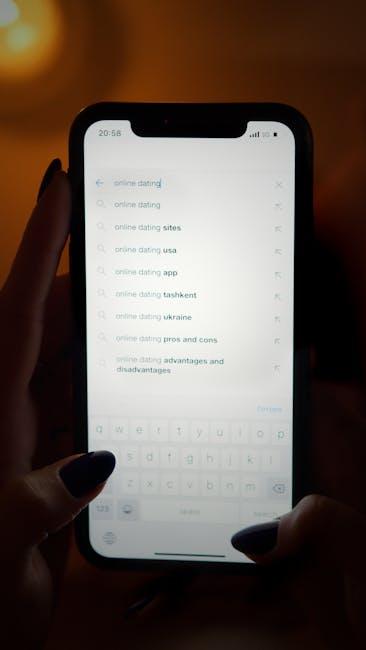In the digital age, where swipes and clicks have become the norm for finding love, dating apps serve as the modern-day matchmakers. Yet, amidst this virtual sea of potential partners, a debate emerges: should dating apps block accounts that don’t have complete user profiles? On one hand, a complete profile can offer a more authentic and transparent glimpse into a person’s world. On the other, the freedom to reveal—or conceal—personal details is a hallmark of online privacy. This article delves into the complexities of this question, examining the balance between user experience and personal freedom in the quest for genuine connections.
Encouraging Authentic Connections: The Role of Complete Profiles
In the world of digital matchmaking, the depth and richness of user profiles can significantly enhance the quality of connections formed. A complete profile offers a multi-dimensional view of an individual, allowing potential matches to find common ground and shared interests. Authenticity becomes the cornerstone of these interactions, as users are more likely to engage with someone who has taken the time to share a fuller picture of themselves.
Encouraging users to fill out their profiles can lead to more meaningful and genuine connections. Consider these benefits:
- Trust Building: A well-rounded profile fosters trust, reducing the anonymity that often plagues online interactions.
- Better Matches: Detailed information helps algorithms suggest more compatible matches, enhancing user satisfaction.
- Engagement: Profiles rich in content can spark conversations, as they provide more topics for discussion.

Balancing Privacy and Transparency: A Delicate Dance
In the realm of online dating, the question of whether to enforce complete user profiles pits privacy against transparency. Privacy advocates argue that users should have the freedom to disclose as much or as little information as they feel comfortable with. They emphasize the importance of protecting personal data in an age where information is easily exploited. From this perspective, allowing incomplete profiles respects individual boundaries and personal security concerns.
On the other hand, transparency proponents highlight the benefits of full disclosure. A complete profile can enhance trust and authenticity, reducing the risk of misleading interactions. For those who prioritize transparency, an incomplete profile may signal a lack of commitment or even deception. Considerations include:
- User Safety: Ensuring all profiles are genuine can help protect against catfishing and scams.
- Enhanced Matching: More information allows for better algorithmic matches, potentially leading to more meaningful connections.
- Community Trust: A culture of openness can foster a more honest and engaging user environment.
Ultimately, finding a balance requires dating apps to navigate user preferences carefully, offering flexibility while maintaining a safe and trustworthy platform.

User Experience and Safety: Weighing the Benefits
When it comes to balancing user experience with safety on dating apps, the debate over requiring complete user profiles is multifaceted. On one hand, complete profiles enhance trust among users, providing a more transparent and genuine interaction platform. Users are more likely to engage with profiles that offer a full picture of who they’re connecting with, which can lead to more meaningful conversations and connections. Moreover, a robust profile can serve as a first line of defense against fake accounts and catfishing, improving overall user safety.
- Transparency: Complete profiles offer detailed insights, making interactions more authentic.
- Trust: Users are likely to feel more secure engaging with well-rounded profiles.
- Safety: Detailed information helps in identifying genuine users, reducing the risk of scams.
Conversely, mandating full profiles could inadvertently deter some users, particularly those who value privacy or are new to online dating. Flexibility and choice are crucial for user satisfaction, and a rigid requirement might alienate potential users who prefer to reveal information gradually. By considering a balanced approach, dating apps can foster both safety and a welcoming environment for all users.

Crafting Policies: Recommendations for App Developers
When developing policies for dating apps, it’s crucial to balance user freedom with community safety. Encouraging complete profiles can enhance user experience by fostering trust and authenticity. However, enforcing strict completion requirements might deter new users. Consider these recommendations:
- Incentivize Completion: Offer features or visibility boosts to users who complete their profiles, making it a positive choice rather than a mandatory requirement.
- Gradual Engagement: Allow users to interact with the app before prompting them to fill in more details. This can create a seamless onboarding experience.
- Profile Verification: Implement optional verification processes to enhance trust without forcing profile completion.
- User Education: Educate users on the benefits of a complete profile, such as increased match potential and safety.
Feedback and flexibility are key. Regularly gather user input to refine policies, ensuring they align with user needs and enhance the overall app experience.



